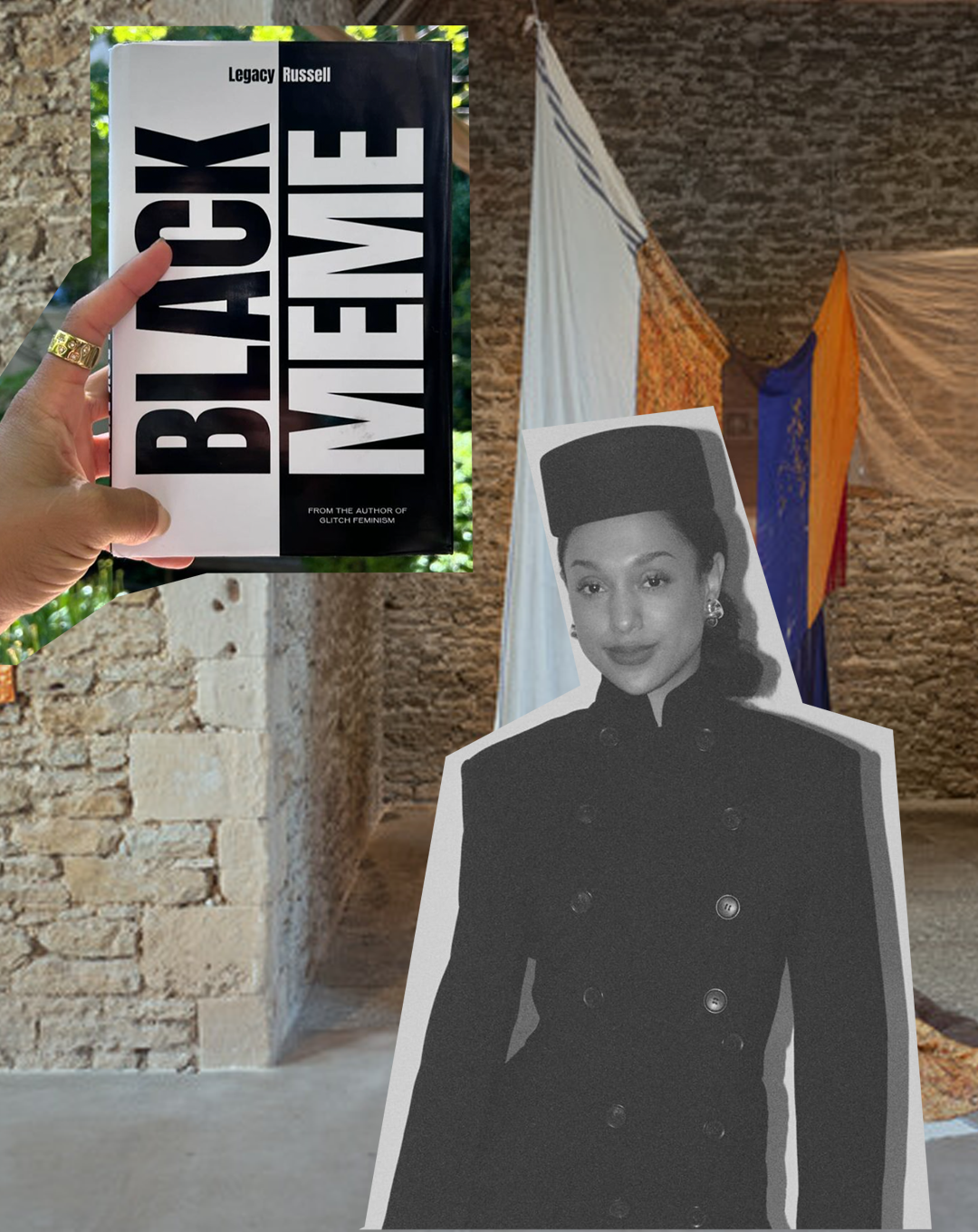Legacy Russell Wants You to Think Critically About Black Memes
Words: Sihaam Naik
Make it stand out
In her new book of essays, Black Meme, curator and writer Legacy Russell compellingly argues that Blackness is not just a cultural identity, but a driving force behind the evolution of digital culture. Through the lens of Black Meme, Russell explores the transmission of Blackness as a viral agent in the digital landscape; Consider the reaction images peppered throughout your social media timelines, the music that underscores the banality of TikTok dances online, and the GIFs that loop over and over for eternities. This transmission, she contends, occurs both online and offline, often without Black consent or compensation. Yet the internet’s obsession with Black culture isn’t new - before the Oprah GIF and Tiffany “New York” Pollard reaction images came a harmful circulation of Black virality that predates cyberspace.
Born and raised in New York City, Legacy Russell is the Executive Director and Chief Curator at The Kitchen, an experimental arts institution. Her first book, Glitch Feminism, started as a groundbreaking essay featured on Rhizome, debuting in a video format before being commissioned as a full-length collection of essays. Black Meme, similarly, started as a lecture and video piece critiquing the construction of digital virality.
The hypervisibility of Black social death online, exemplified by viral images of police brutality and racial violence serves as a form of economic exploitation, according to Russell. She draws parallels between historical forms of racialised violence, such as lynching postcards, the dancing baby GIF, and Michael Jackson’s Thriller music video- proving, that visuals of inequality predates cyberspace. Each chapter in Black Meme centres around a moment in history and how Black people have turned from martyrs to myths and then mythological memes. Through these case studies, accompanied by haunting images, Russell explores the dark underscores of reproducing digital icons for collective consumption online. By unpacking various eras of ‘Black Memes’ through an analytical lens, readers can see the evolution of race in shaping our understanding of digital spaces and imagine alternative futures grounded in equity and justice.
Russell's work is not just informative but transformative. She maps “Black Memes” as a concept through pictorials and videos, providing a comprehensive understanding of their evolution. Her exploration of Black memetic transmission starts with the intersection of technology and identity, challenging the reader's preconceptions. By conceptualising Blackness as a 'meme,' Russell reframes the conversation around race and technology, highlighting the agency of Black individuals in shaping digital culture.
“Black Meme aims to be in service to open up that conversation with the great hope that we can establish a different set of parameters around what authorship should look like and how that can be honoured,” Legacy tells me over video call when asked about ownership in the digital age.
“The commodification of Blackness in digital spaces, according to Russell, is Fordist in nature - dissociating the Black body from its humanity and reducing it to caricature.”
This process perpetuates what poet Harmony Holiday, in her 2020 digital essay The Black Catatonic Scream calls "memetic emancipation", wherein Blackness becomes a perpetually circulating commodity. The concept of GIFs as a looping repetition becomes a glitch.As coined by Russell in 2013, ‘Glitching’ involves embracing the chaos that our culture shies away from. Glitch isn’t an error- but a catalyst for change and should be embraced.In Black Meme, Russell also introduces the idea of "data healing", coined by theorist and curator Neema Githere. Data Healing is, in essence, a response to the trauma inflicted by digital exploitation, with the emphasis being on the importance of undoing the effects of systemic dehumanisation.
Interestingly, Russell also delves into the notion of double consciousness. First coined by W.E.B. Du Bois, double consciousness describes the experience of Black individuals navigating digital spaces while acutely aware of how others perceive them. Russell argues that this constant negotiation of identity in online spaces perpetuates systemic injustices and reinforces hegemonic power structures. “Double consciousness comes with an awareness that we can produce and create space, online, space and then at the same time,we have to also think about how to protect ourselves.” By centring on Black voices and experiences, Russell challenges readers to confront their complicity in perpetuating these systems of oppression.
In Black Meme, Russell’s compilation of meme history feels relevant and cosmically connected. All the forms of memes documented in her book feature a longstanding question: Is Blackness a decorative art only valued in its death? In response, Legacy writes that throughout the chronicled history, Black Memes have failed because of a culture that consumes them but does not do the work to love them. “As we project ourselves into different realities and continue to sustain ourselves, it’s important to highlight the gorgeousness of life that black folks should be entitled to.”
Longstanding fans of Russell are quick to notice her books read like manifestos and calls to action that end comprehensively in a ‘Remix’ instead of an Epilogue. “I hope that readers pick up that charge and take it as a task and opportunity to continue to transform how the text can be applied,” smiles Legacy when asked about the concept of remixing. Picking through the book's themes, the last chapter solidifies Russell’s hopes for a flawed system and what reparations can look like to repay the debt of the titular Black Meme. By adopting the inherent instability of digital spaces, Russell contends that we can challenge existing power structures and imagine new possibilities for collective liberation. Through her analysis of Black memetic transmission, Russell offers a robust framework for understanding how race shapes our interactions with technology and invites readers to join her in envisioning a more just and equitable future.


